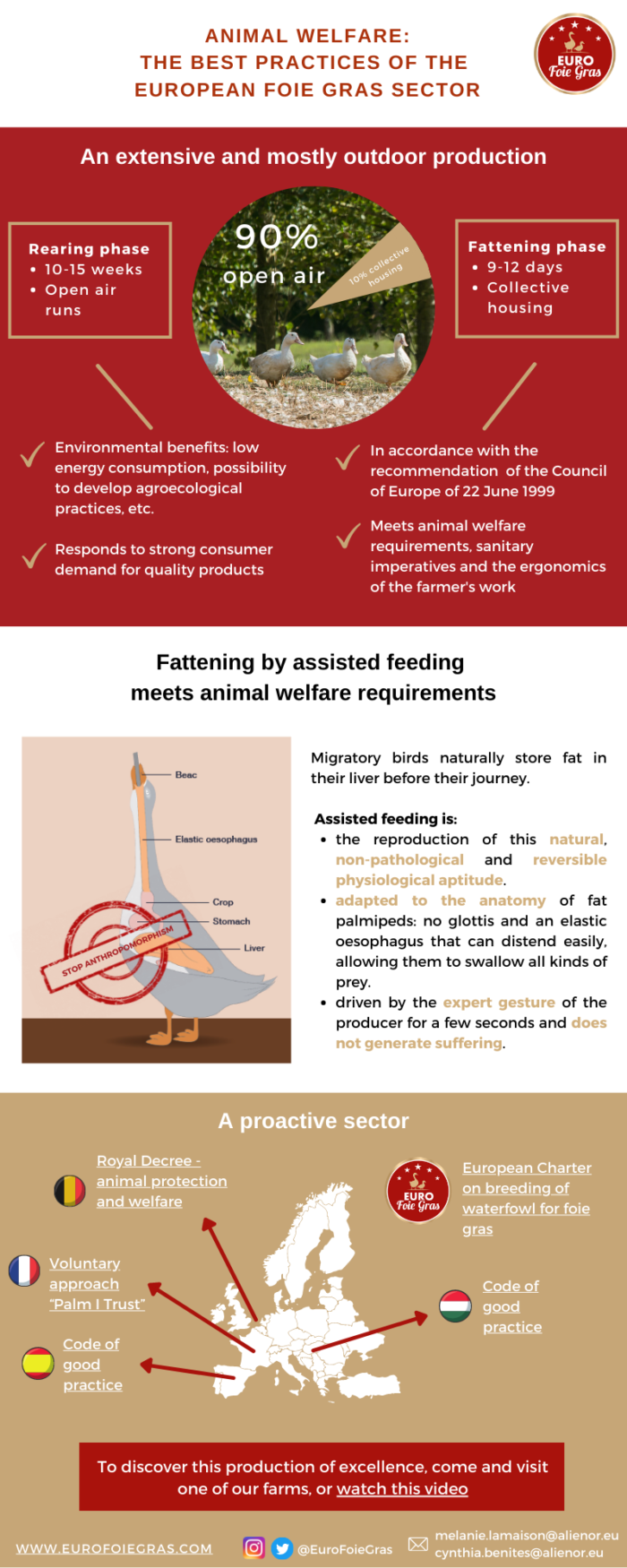Outdoor breeding and collective housing: the best practices of the European foie gras sector
The rearing of fat palmipeds (ducks and geese) is extensive, very often family-run, and mostly in open air. With 90% of the animal’s life spent outdoors, the palmipeds live in collective housing only during the fattening phase and for a limited period between 9 and 15 days depending on the species.
In the five European producing countries – Belgium, Bulgaria, Spain, Hungary and France – fat palmipeds farmers are subject to strict regulatory requirements and controls in terms of animal health and welfare, including the European Directive 98/58/EC on the protection of animals kept for farming purposes.
Euro Foie Gras has always worked and will continue to work so that fat palmipeds are reared in optimal conditions by fully ensuring their well-being while meeting requirements related to sanitary aspects and offering satisfactory working conditions to breeders.
Learn more about European foie gras production by reading our position paper or watching this video.

